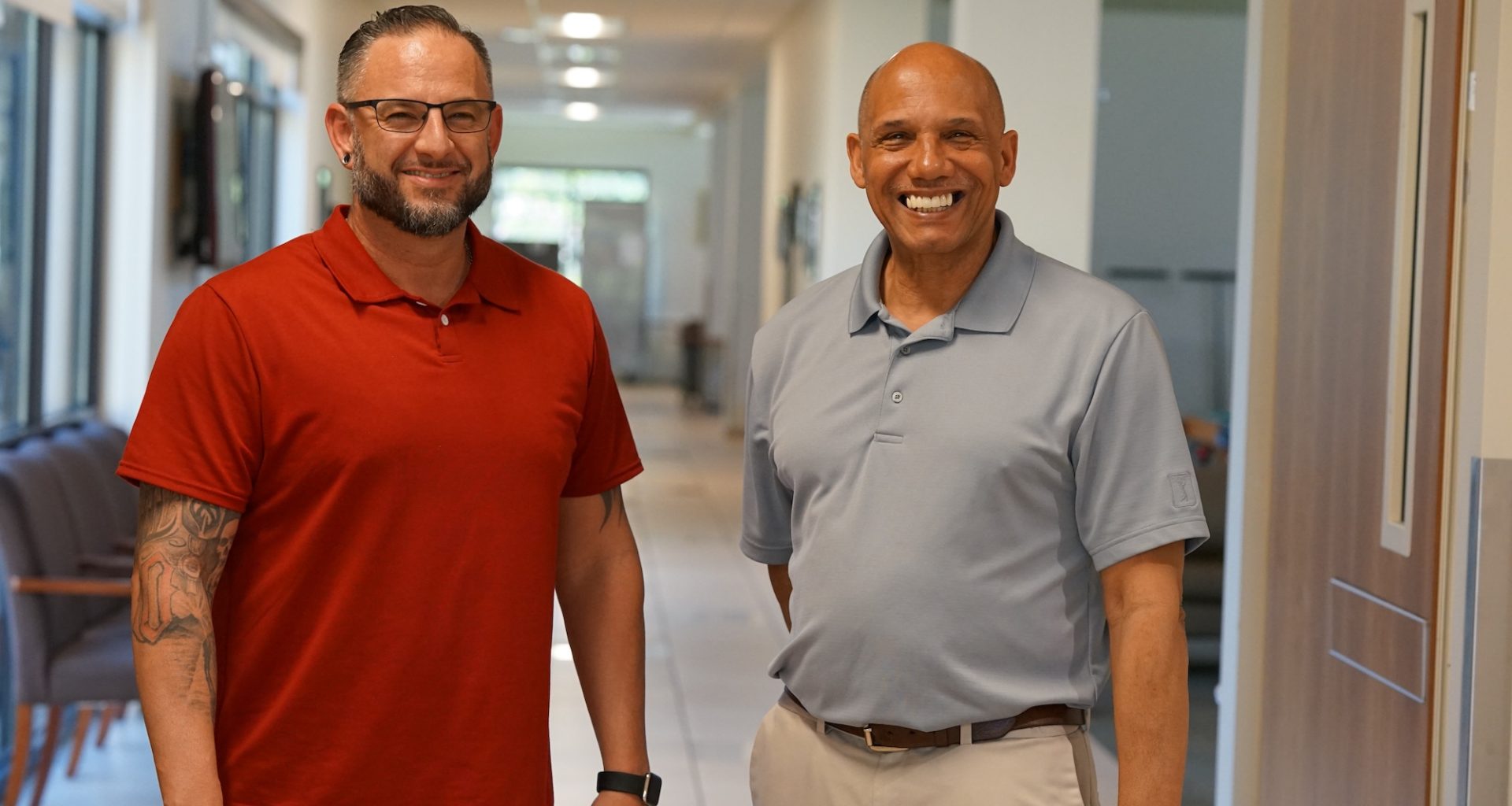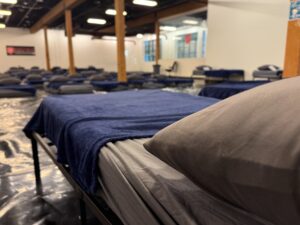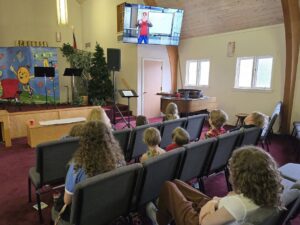Bridgeway of Hope combines independence with accountability for men rebuilding their lives after recovery.
At Bridgeway of Hope in Portland, Oregon, The Salvation Army offers men in recovery a structured next step—one that pairs accountability with support for long-term change. Since opening in 2021, the residential program has helped more than 150 men stabilize their lives after substance abuse.
Lloyd Potter knows what that journey takes. Years earlier, he completed the Salvation Army Adult Rehabilitation Center (ARC) program at the same location. Now, he’s back—not as a resident, but as an employee helping others walk the same road.
From a young age, Potter believed he knew his destiny.
At just 5 years old, he’d set his sights on a baseball career. He pursued that dream into college, where he played into his sophomore year—until an elbow injury ended it all.
“I immediately lost my purpose in life,” he said. “I fell into darkness.”
That darkness led to a long struggle with substance abuse, lasting until he reached age 35.
The day after his 35th birthday, when he was pulled over by a police officer and asked if he had anything illegal in the car, Potter didn’t hesitate. He handed over everything he had.
“I basically cried to him for help,” he said.
Potter told the officer he wanted to change his life but didn’t know how. So, instead of arresting him, the officer gave him a court date six weeks out and told him to get help.
Soon he secured a spot at The Salvation Army Portland (Oregon) Adult Rehabilitation Center (ARC). He entered the six-month residential program in November 2018.
With 122 residential treatment facilities in America, The Salvation Army is providing assistance to individuals who are experiencing a variety of social, emotional and spiritual challenges, including issues relating to substance abuse.
Learn more and give to support The Salvation Army’s rehabilitation programs here.
“Walking up the sidewalk to the ARC building, I had no idea what was waiting for me,” he said. “I didn’t know what recovery was. I had no relationship with God, Jesus—and I knew I was walking into a house that I couldn’t walk out of for six months.”
He faced a prison sentence of 13 years if he didn’t complete the program. Knowing that kept him motivated.
Potter graduated in June 2019. He took a gas station job and stayed sober. Eventually, he began working at another treatment center, using his own recovery to support others. He received certification as an alcohol and drug counselor.
Meanwhile, the Portland ARC had been reimagined as Bridgeway of Hope, a sober living residence for men who have completed a recovery program and are working toward independent living.
Bridgeway offers up to 24 months of supportive housing in a substance-free environment, with furnished apartments, a daily meal and snacks, counseling, classes in relapse prevention and life skills, recreational outings, and help with credit, court issues and housing barriers.
Recovery meetings and Bible studies are also available, and the facility offers a gym, TV rooms, ping-pong and pool tables, a basketball court and internet access. The monthly rent of $550 allows residents to save toward future independent housing.
“The program offers men in recovery a supportive environment where they can reconstruct their lives and prepare for community reintegration,” said Executive Director of Multnomah County Shelter Services Justin Moshkowski. “Participants experience personal transformation, moving beyond their former struggles to discover renewed purpose and identity.”
Since its 2021 launch, Bridgeway has served 154 men—70 in the last year alone. Currently, it houses 41 men.
“Without hope, life can feel like being trapped in a room with no exit. But when hope appears, men find the determination to step into a beautiful new world of possibility.”
Lloyd Potter
Potter returned to The Salvation Army in 2023, joining the Bridgeway staff as a case manager. He’s served as resident manager, counselor and now Site Operations Coordinator and Intake Coordinator.
Potter said creating a home-like, low-stress environment is key. He organizes regular outings like hiking and fishing.
“I really focus on showing these guys how to have fun in recovery,” he said. “If you’re not enjoying recovery, what’s the point? That’s what leads to relapses and depression. I try to bring some joy to recovery.”
He said he’s learned that taking away the addiction isn’t enough—it must be replaced with something meaningful. For him, that’s hiking.
“That’s where I find my serenity,” he said. “That’s where I find that I am closest to God.”
Moshkowski said the hope Bridgeway offers is foundational.
“It sustains men through the challenging work of rebuilding their lives,” he said. “Without hope, life can feel like being trapped in a room with no exit. But when hope appears, men find the determination to step into a beautiful new world of possibility.”
Bridgeway’s success rate is growing. Potter said about 80 percent of residents now discharge successfully into independent housing—and the center recently went nearly a year without a relapse.
Moshkowski said renewed partnerships have strengthened Bridgeway’s reach, including collaborations with Union Gospel Mission, Portland Rescue Mission, Teen Challenge and City Team, adding that these partnerships build upon existing relationships with Salvation Army adult recovery programs across California and Washington.
Looking ahead, Moshkowski said future plans include expanded services.
“Current additions include Rent Well classes, financial literacy courses and family restoration through the Pathway of Hope program, with plans for more workforce development opportunities,” he said.
Potter said he wants people to know there’s always a way out.
“Hope is contagious,” he said. “I feel like the biggest way to get hope is from somebody else… Before I got sober, I used to yell at God: ‘If you are real, why are you putting me through this?’ But I know now that God wasn’t putting me through it—he was pulling me through it so I could then pull other people out of it, too.
“I look at that as my purpose. If I can just help one person change their life, that’s an accomplishment.”
Do Good:
- See how The Salvation Army supports rehabilitation.
- It’s because of people like you that The Salvation Army can serve more than 27 million Americans in need each year. Your gift helps fight for good all year in your community. It’s an effort to build well-being for all of us, so together we rise—and that good starts with you. Give to spread hope with a donation of funds, goods or time today.












